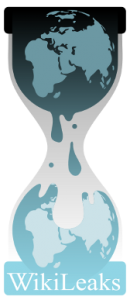September 5, 2011
In class, we discussed the documentary movie, The Most Dangerous Man in America: Daniel Ellsberg and the Pentagon Papers.
If you can, watch the movie. (It’s an instant download on Netflix, and the BGSU library has it too.) Then consider these questions.
The Most Dangerous Man in America
Questions to Consider
HERO OR TRAITOR?
- Although this movie is a historical documentary, it has a clear point of view. How do you think the movie portrayed Daniel Ellsberg? How did it portray President Nixon and his administration?
- President Nixon says, “I think it is time in this country to quit making national heroes out of those who steal secrets and publish them in the newspapers.” Should Ellsberg be considered a hero? Why or why not?
- At the time, many people considered Ellsberg a traitor for revealing national secrets. President Nixon said, “Daniel Ellsberg, whatever his intentions, gave aid and comfort to the enemy, and under those circumstances, that is inexcusable. After all, he is putting himself above the president of the United States, above the Congress, above our whole system of government, when he says in effect that he would determine what should be made public.” What are your thoughts on Nixon’s statement?
- Some people might think that when Daniel Ellsberg became convinced that the Vietnam War was wrong, he simply should have quit. Instead, Ellsberg decided to release government secrets. Did Ellsberg do the right thing? Did he go too far?
THE MEDIA CONTROVERSY
- Was The New York Times justified in publishing the Pentagon Papers even though they were classified as top secret government documents?
- Some of the history included in the Pentagon Papers had been known for years—for example, it was no secret that the United States took the side of the French following World War II and did not support Vietnam’s Declaration of Independence read publicly by Ho Chi Minh in September 1945. Are The New York Times (and other newspapers) the heroes of this story, or should they have been doing a better job throughout the entire war? Is The Most Dangerous Man about the media’s success or about its failure?
- The Nixon administration tries to stop publication of the Pentagon Papers. Attorney General John Mitchell orders The New York Times not to publish them. What was the Nixon administration worried about? Did the publication of the Pentagon Papers truly endanger national security?
- President Nixon and National Security Advisor Henry Kissinger both said that publishing the Pentagon Papers was an attack on the “integrity of government.” Were they right? What impact did the Pentagon Papers release have on government and society, beyond its implications for the war in Vietnam?
CURRENT-DAY ISSUES
- Today, in post-9/11 America, would Daniel Ellsberg’s actions be considered acts of “terrorism,” or acts that aided and abetted terrorism, if the documents released concerned a current war – the war in Iraq, for example?
- When should “whistle-blowing”—in this case, releasing government secrets—be considered a crime and when should it be considered an act of patriotism or a civic or moral duty?
- In 2010 and 2011, the website WikiLeaks has released hundreds of thousands of secret U.S. documents describing the conduct of the war in Iraq, diplomatic relations with other countries, and other topics. WikiLeaks founder Julian Assange, echoing the words of Daniel Ellsberg, said that, “Transparent government tends to produce just government.” Consider the case of WikiLeaks more fully. How do the actions of WikiLeaks compare with those of Daniel Ellsberg? How has the issue of “intellectual property” changed since the Pentagon Papers? Daniel Ellsberg has commented extensively on the WikiLeaks case. Research his comments and weave them into your analysis.
- Examine the Pentagon Papers case that went to the Supreme Court (New York Times v. the United States). What were the key arguments? There were multiple opinions written by Supreme Court justices; what are the lasting effects of the Supreme Court decision and of the various opinions? What bearing does the case have on contemporary whistle-blowing incidents? How might today’s court have decided the case?
- One of the arguments made against Daniel Ellsberg is also leveled against contemporary whistle-blowers: Do whistle-blower activists like Julian Assange endanger U.S. soldiers or allies? Did Ellsberg’s actions endanger U.S. troops in Vietnam? Where does one draw the line in terms of what endangers troops and what doesn’t?
- Which takes priority: national security or the people’s right to information? Since the Nixon administration, the United States has witnessed an expanded use of “national security” as a rationale for keeping information from the public. What constitutes “national security”? How far can presidential power grow during a time of undeclared war, such as the conflicts in Afghanistan and Iraq; or during an indeterminate conflict, such as the so-called war on terrorism? How do opinions written by the Supreme Court in the Pentagon Papers case inform this issue?
